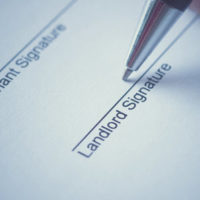Commercial Landlord Rights: Liens and Distress for Rent Under Florida Law

Unfortunately, many landlords have been forced to deal with tenants that fail to pay their rent on time. When this happens, the landlord has a legal right to take action, including to force an eviction from their property in accordance with the procedures of Florida law.
Of course, if rent is overdue, eviction itself is not sufficient for a landlord to actually get paid back the money that they are rightfully owed under the terms of the lease. Repayment is critically important, as a landlord’s property has been in use without just compensation. To recover overdue rent, a landlord may need to file for a lien against the property of the tenant. Here, our West Palm Beach commercial landlord rights attorneys discuss landlord liens and distress for rent proceedings under Florida law.
Getting a Landlord’s Lien
Under Chapter 83.08 of the Florida state statutes, landlords can seek a lien against a tenant for their unpaid rent. A lien is simply a legal right to obtain and keep property of another person, until that other person has satisfied any debt obligation that they have to the lienholder. With some very limited exceptions, landlords have an automatic right to obtain a lien on property of a tenant who has unpaid rent. Indeed, a landlord does not even need to file anything to obtain this lien.
Enforcing the Landlord’s Lien
Of course, to be effective liens need to be enforced. A landlord simply cannot go and take something from a tenant without seeking the right to enforce their lien. Under Chapter 83.11 of the Florida state statutes, landlords have the ability to file a distress for rent complaint to seek compensation for unpaid rent. This initiates the proceedings to seize a tenant’s property. In some cases, this is a necessary step to get the tenant to take the issue of unpaid rent seriously.
Commercial Tenants Should Not Escape Payment
Commercial landlords in South Florida should not let their commercial tenants escape without satisfying the entirety of their unpaid rent obligations. Ultimately, the best way to obtain payment from the tenant will depend on the specific circumstances of the case at hand. In some cases, a commercial landlord rights attorney may be able to work out an efficient, out-of-court settlement with the tenant. In other cases, legal action may need to be taken, including entering a debt judgment against the delinquent tenant, and eventually moving for the seizure of the tenant’s property. For commercial landlords, the best way to protect the rights and interests of their business is to take quick action.
Get Legal Help Today
At Pike & Lustig, LLP, we have extensive experience representing commercial landlords. For immediate assistance with your case, please call our team today at 561-291-8298 in West Palm Beach or at 305-985-5281 in Miami to set up your free initial legal consultation. We serve communities throughout Southeastern Florida, including in Miami-Dade County, Broward County and Palm Beach County.
Resources:
leg.state.fl.us/Statutes/index.cfm?App_mode=Display_Statute&Search_String=&URL=0000-0099/0083/Sections/0083.08.html
flsenate.gov/Laws/Statutes/2012/83.11



